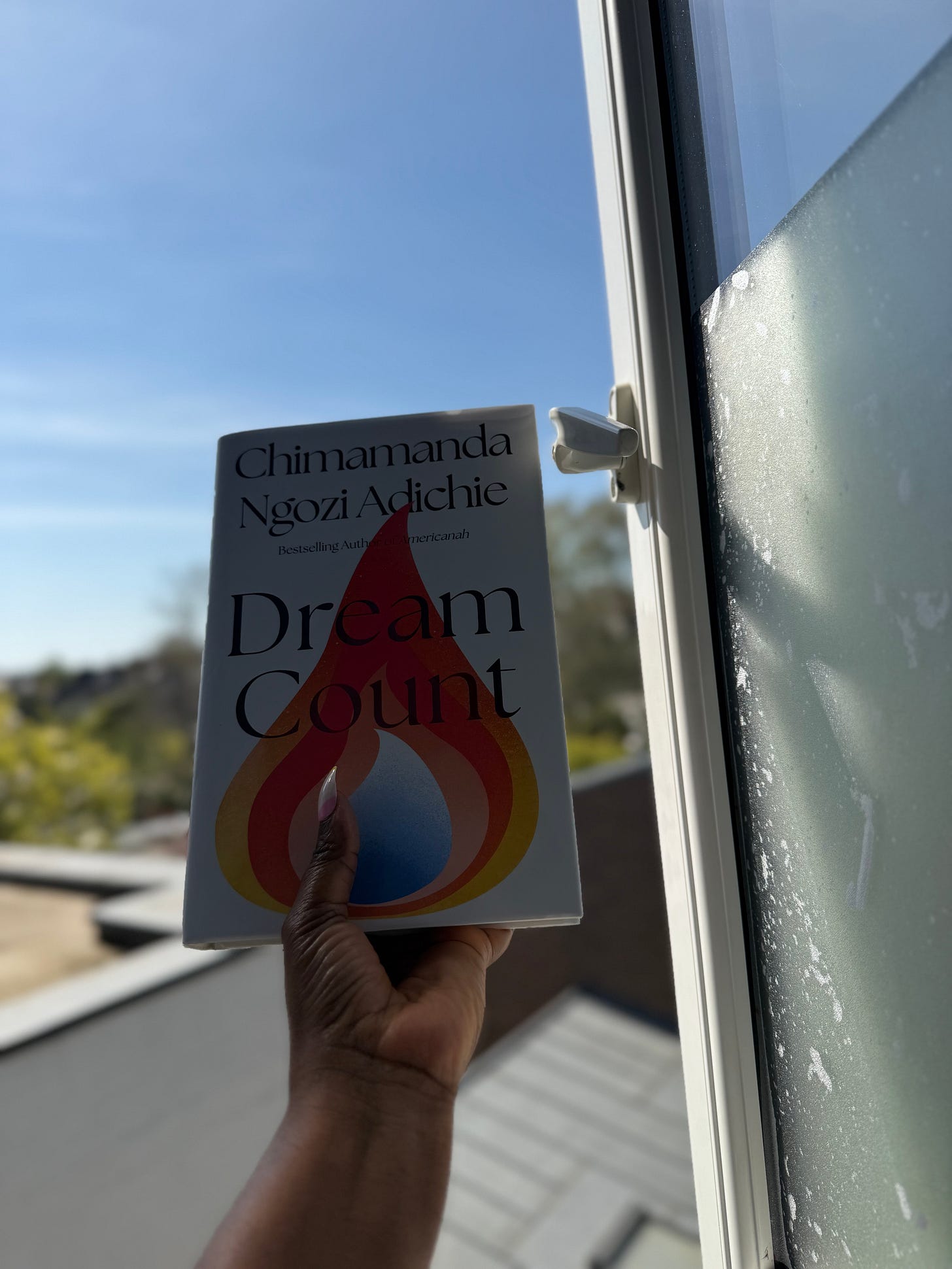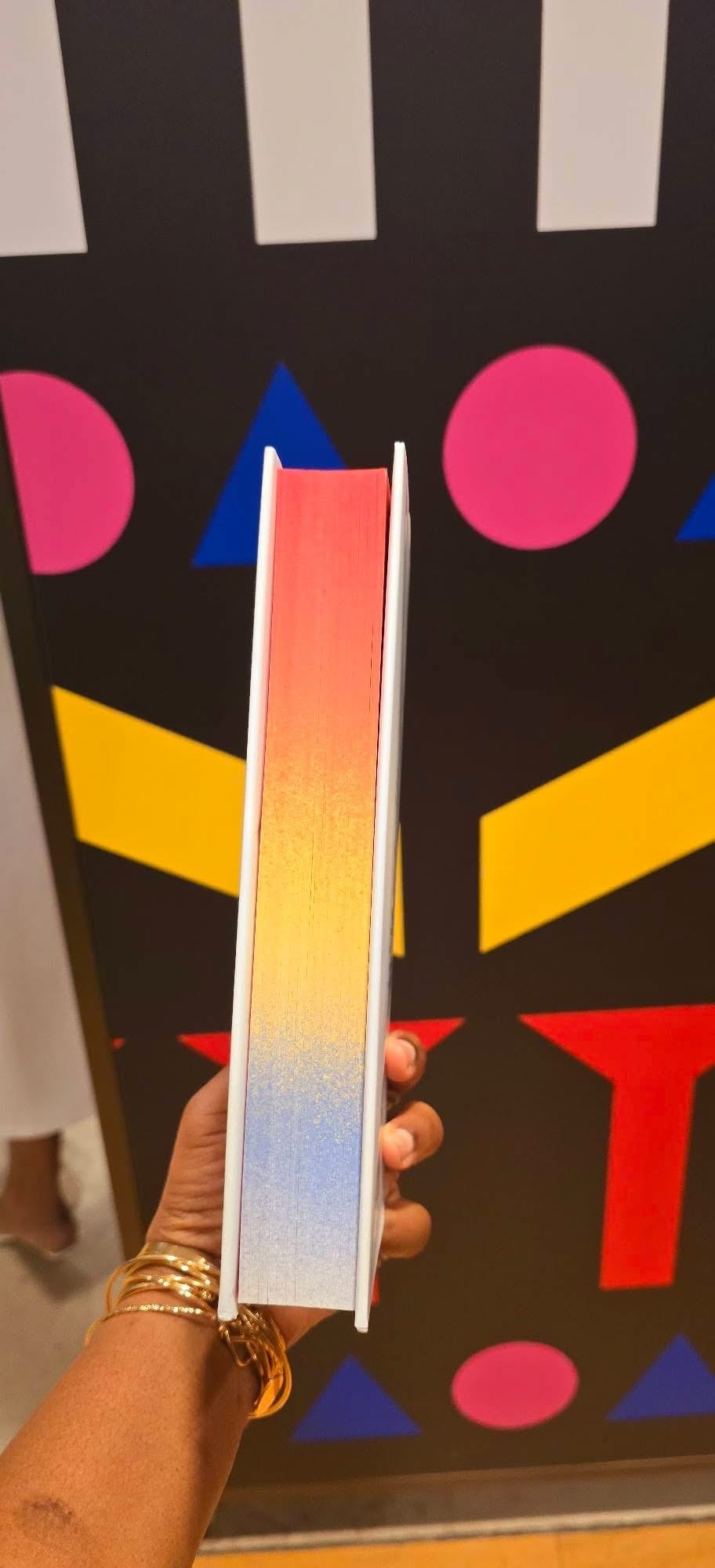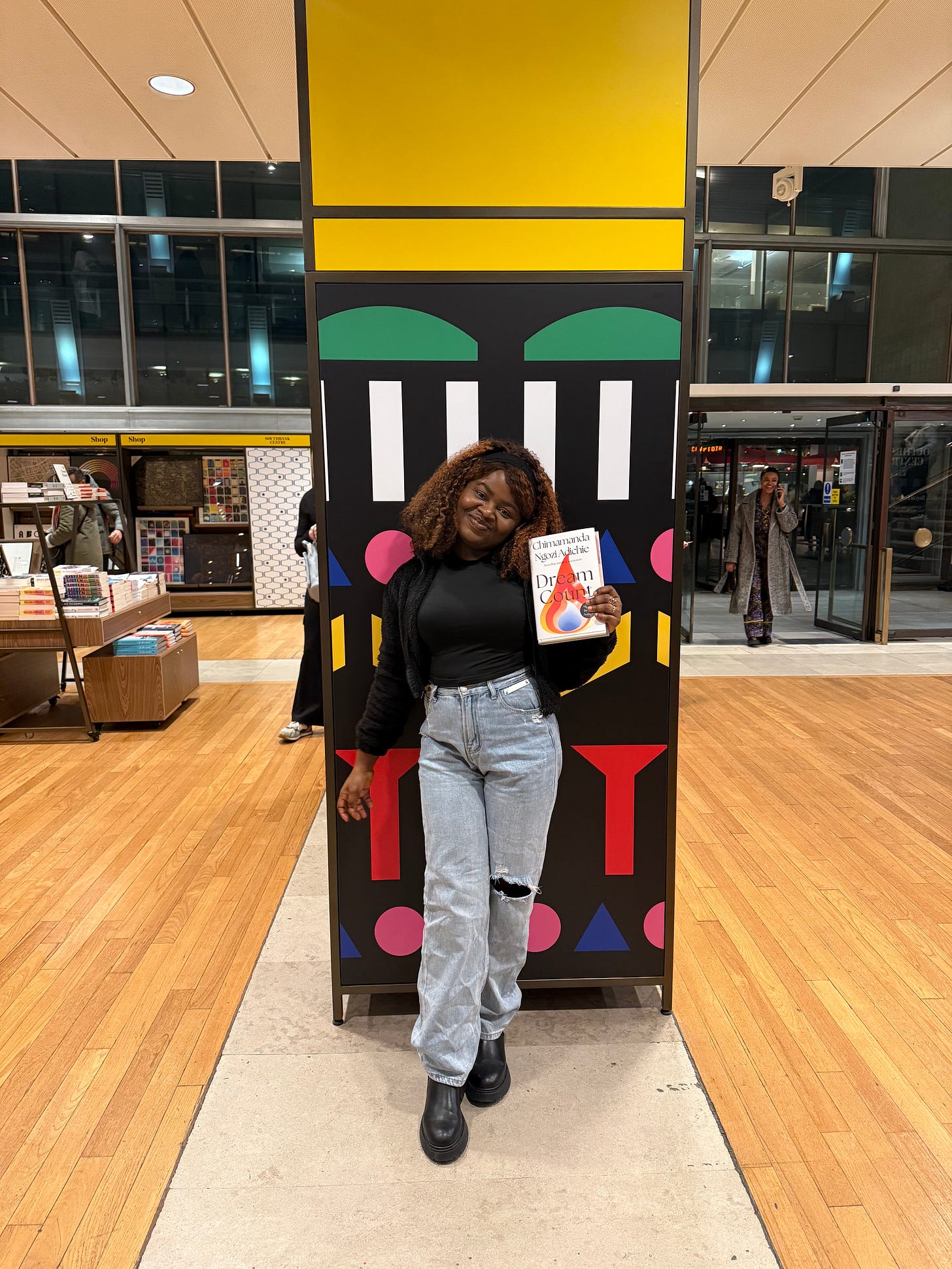Book Review: Dream Count.
Dream Count tells the story of four women whose lives are interwoven.
It explores the layers of womanhood, our lives, our dreams, the challenges we face, and the expectations the world lays on our shoulders.
It offers an honest look at the type of romantic relationship most women find themselves in, the demands that often come with them, how women navigate these experiences and the emotional turmoil they sometimes leave behind. It reflects on the beauty of friendship and the power of sisterhood, having women who not only get you but also showing up when it matters.
The book doesn’t shy away from examining the societal pressures placed on women and how these expectations shift with age. In your 20s and 30s, you're encouraged to settle down, find a "good man," and have children. But by your 40s, the conversation changes. Now, it’s: "Just have a child, even if you adopt." There’s this underlying fear that you’ve passed your prime, that your “shelf life” is expiring. And so the message becomes: Do as you please, but don’t end up alone. An ideology greatly fueled by our patriarchal society masked with a show of concern.
It reflects on need, the need to love and be loved, to belong, to be seen. To have someone who sees you the way you see yourself. A love that endures, even into old age.
One of the central theme is showing that not all women want the same things. Dream Count introduces us to characters who represent different paths and different truths. Chia, a helpless romantic and travel blogger wants to pursue her passion outside the family legacy. We’re first introduced to her through her unsavory relationship with Darnell, an experience many women can, unfortunately, relate to.
Zikora wants both a thriving career and a solid marriage, even if that means bending, compromising, and sometimes putting her own needs aside. But life had other plans, and her relationships with men, with her mother, with herself begin to shift. What I appreciated most was how she started to see her mother differently. Growth often begins in places we least expect.
Binta and Omelogor are fierce, risk-takers, bold and adventurous. They go all in for the life they believe they deserve, even if their dreams seem laughable to others. That Binta’s life was cut short was a heartbreak that lingered.
Omelogor is perhaps the most striking of the four. Ambitious, blunt, and deeply unfiltered. She’s not written to be likable all the time, and that’s what makes her real. I admired her, then rolled my eyes, then admired her again. Her Robin Hood-style agency and her unconventional academic interests, particularly in male sexuality and the teaching of sex education were bold and thought-provoking. Her descent into depression in a foreign land was unexpected, not something i would have anticipated. Her friendships, especially with characters like Jide, reminded me of a familiar type of people who complain endlessly about their situation but resist every opportunity for change. Chronic complainers, we all know a few.
Then there’s Kadiatou. She desires a quiet, peaceable life, walking in the steps of traditional women. She doesn't wish to step outside what’s expected of her but she’s content, supportive of others who do dare, and even finds herself admiring them from a distance. But life isn’t always predictable. Sometimes, a Kadiatou becomes a global sensation, not by choice, but by circumstance and she must now navigate the spotlight she never asked for.
Beyond personal stories, the book weaves in a broad range of themes: the kind of men you find in today’s relationship pool, cultural differences across nationalities, the decay of governance and financial systems, Abuja socialite lifestyles, homophobia, the failing structures of American education, racism, war and religious conflict, terrorism in Northern Nigeria, Igbo culture, and the long standing effect of COVID-19 and its aftermath on our lives.
Dream Count is a good book but a slow one. Whether it pulls you in or drags depends on how interested you are in its themes and characters. It's also the first of Adichie’s books where I noticed the use of “big, big” words, they were tiring sometimes and my friends hold the same sentiment.
Did you read Zikora’s short story before this? What did you think of where her journey led!
Tashakoor Mikonam
☺️








